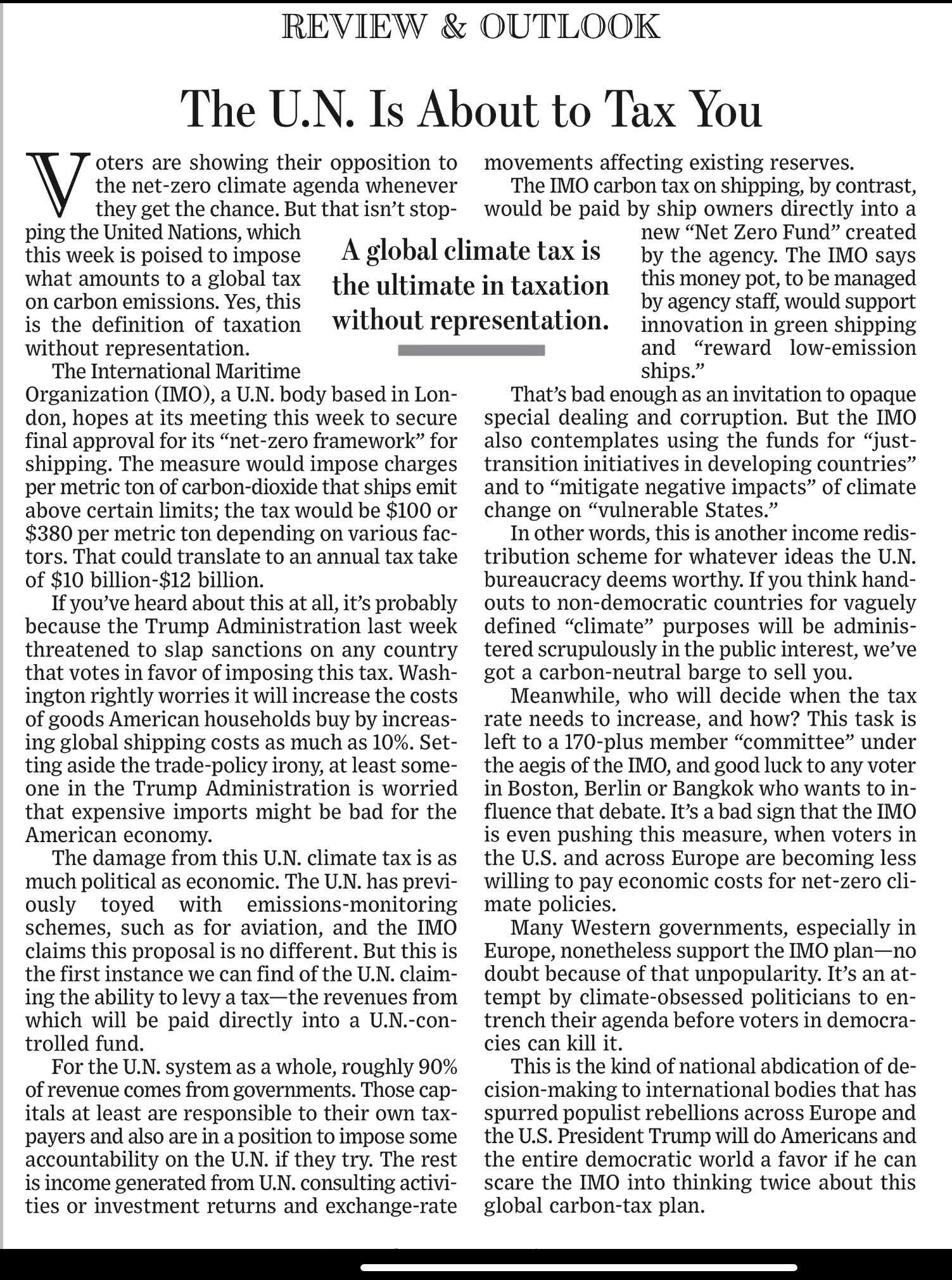You are using an out of date browser. It may not display this or other websites correctly.
You should upgrade or use an alternative browser.
You should upgrade or use an alternative browser.
The New Green Steal in the news
- Thread starter Diogenes
- Start date
Diogenes
Nemo me impune lacessit
The UN cannot levy tax, nobody should pay this.
Big W for POTUS:
View: https://x.com/EricLDaugh/status/1979212925249138762
Crepitus
Verified User
Diogenes
Nemo me impune lacessit
The UN can't tax the US.
Cool straw man though.
The IMO/UN can't unilaterally tax sovereign nations (per UN Charter limits), but the levy would function like one via market pressures.
The International Maritime Organization (IMO), which is a specialized UN agency focused on global shipping regulation attempted to advance a global emissions pricing mechanism—often framed by U.S. officials as a de facto "carbon tax"—that would have indirectly raised costs for U.S. shipping companies, consumers, and trade. This effort culminated in a failed vote during an extraordinary IMO session on October 14-17, 2025, largely due to aggressive U.S. opposition.
Estimates suggested it could add up to 10% to global shipping costs, indirectly hiking prices for U.S. imports/exports (e.g., consumer goods, energy). U.S. critics, including the Trump administration, called it "taxation without representation" since revenues wouldn't return to the U.S. Treasury but to a UN fund.
The IMO lacks direct enforcement power since member states must ratify and implement via national laws, but non-compliance could lead to port access restrictions or trade barriers.
Singapore proposed a delay motion (backed by Saudi Arabia), which passed on October 17, postponing adoption to at least October 2026 (with implementation possibly slipping to 2030). U.S. officials hailed it as a "huge win," crediting President Trump's leadership.

